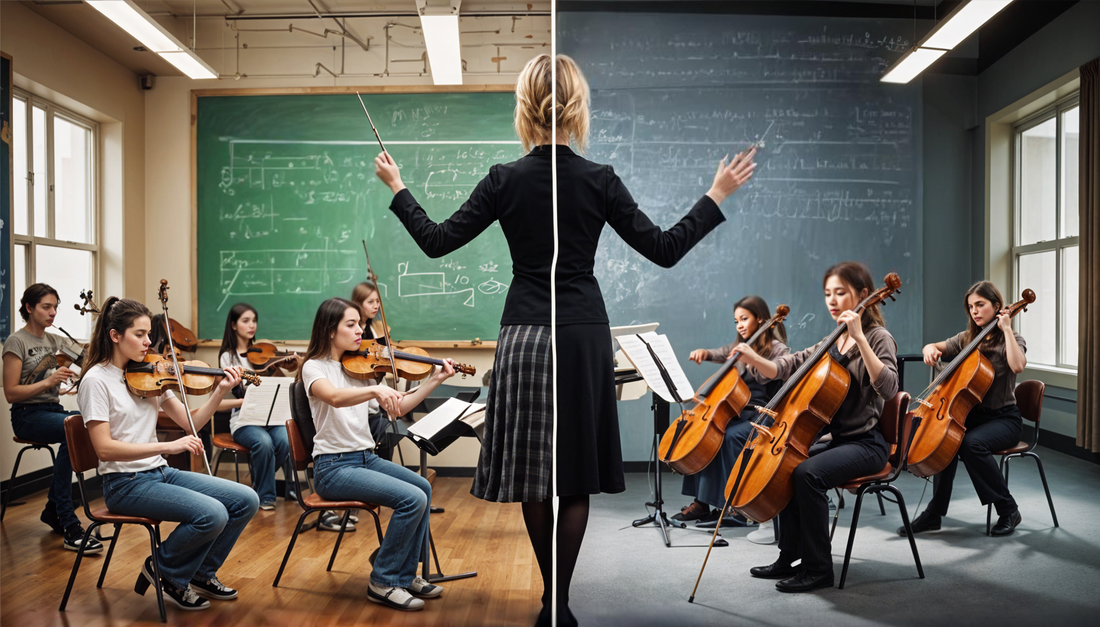Those Who Do and Teach

What is it about being a teacher that makes so many composers shy away from that part of their identity? Recently I was part of a discussion of how those of us writing new music make a living. Even though all who were present were current or former teachers, I was the only one who had it as part of my job label. For most of my colleagues, though, it was either referred to as their day job or not mentioned as part of the various professional occupations they did as a musician.
Why do so many composers shy away from declaring themselves pedagogues? Does it have to be an either/or? And, in order to be both, do you have to diss one? Do we actually believe that “those who can’t do, teach”?
For many of us, becoming a teacher is not initially part of the vision of being a composer. It is only as we creep through our graduate studies that we begin to realize the unsaid expectation that teaching will be a primary component of some of our careers, whether it is as a professor in higher education or as a private studio teacher. And once we find ourselves in that position, we are not quite sure of how to integrate it into our definition of ourselves.
Perhaps we fear being known more for our pedagogical skills than for our compositional chops? I have heard more than one colleague bemoan how their institutions neglect acknowledgement of their composing careers, yet fawn over other composers when they’re in town. Similarly, I have seen some students litter their bios with names of luminaries they met at festivals but drop those of their primary teachers, seemingly ignorant that their mentors are also working composers worthy of being noted in their programs.
Consciously or unconsciously, we might also not respect this most important of all professions. Whether it is in music, medicine, or in the home, our society pays lip service to education, but never to educators. We scream that we must improve the quality of our schools, but derail the teachers who are instrumental to changing the status quo.
Maybe we also have some resentment, and fear that teaching sucks up all of our creative brain cells, leaving little to use for composing. I admit that to teach effectively takes a lot of time, thought, and creativity. However, I have found that teaching actually helps stretch my compositional chops. Helping a student solve or learn something requires the same skills needed to tweak or conceive of a piece. In fact, it has been the other jobs I’ve tried or simply daily life that has tended to leave me feeling dead and empty of any creative thought. (There is that pile of dishes again.)
I admit that I fell into teaching. I’ll also admit that I need to take time off from teaching to compose. And I’ll admit that I do fear being known only as a teacher. But, at the same time, I admit that I fear being known only as a composer. I am damn proud that I am a teacher, and I hope all of us who are teachers could be, too.
